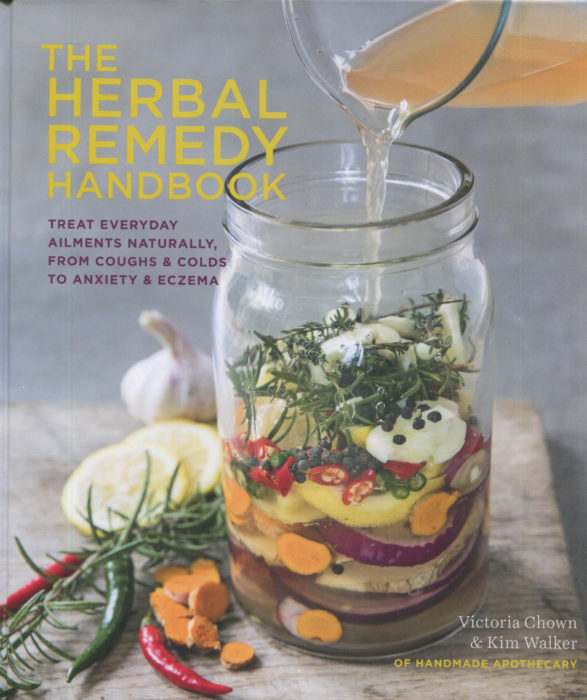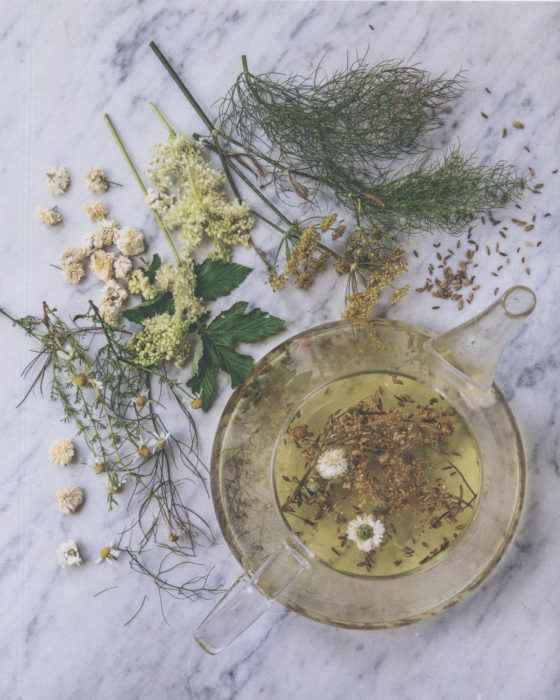
Today if something is “wrong” with us our first instinct is often to visit the local drug store and buy something. Headache, tummy ache, sore muscles, bee sting, … That drug store has thousands of bottles and tubes to address the problem.
And those commercial solutions generally work. But, what did people do before drug stores? For thousands of years, around the world, people turned to herbs to fashion cures. So today, you have a choice: Big Pharma or that sprig of herbs in your garden, that jar of herbs in your kitchen pantry.
The Herbal Remedy Handbook has the widest possible spectrum of ideas for your consideration. The handbook begins with some key guidance:
- How to use herbs safely
- How to source them
- What to use for internal remedies
- What to use for external remedies
There’s a quick first section for First Aid to deal with those cuts, bumps and bruises we all get — especially if kids or grandkids are around.
Then there are mini-chapters for different conditions around the body:
- Circulatory health
- Digestive health
- Immunity and infections
- Moods and emotions
- Muscles, bones and joints
- Respiratory health
- Skin, hair and nails
- Children’s health
- Men’s health
- Women’s health
- Mother and baby
Here’s an example. If you have some chest congestion, some herbs that can help include echinacea, elderberry, thyme, licorice, garlic, plantain, eucalyptus and sage. There is a recipe for Elderberry Syrup to use as a cordial that bring relief: elderberries, ginger, cinnamon, star anise, cloves, cardamom, lemon and sugar. Drinking this potion will surely open your eyes a tad and should, according to authors Victoria Chown and Kim Walker, really provide relief.
If after a meal you have some indigestion or heartburn, then how about an after-dinner tea with dried chamomile flower, meadowsweet flower, and fennel seeds:

That tea is a beauty to behold, both beautiful and a remedy that will help your upset tummy.
Your kitchen cabinet may already hold items that can help your health. A section on Culinary Herbs covers everything from Anise to Turmeric. Your container of cinnamon gives you a pathway to clearing away mucus in your lungs and sinuses. And a teaspoon a day of cinnamon can lower blood sugar. The Herbal Remedy Handbook can spare you that drive to a drug store and make your life immediately better. Without needing any Big Pharma help. You probably want to give The Herbal Remedy Handbook a test drive. It’s a life changer.
The authors here do have real and intense experience. Vitoria Chown practices as a medical herbalist in London and has worked at Neal’s Yard Remedies. Kim Walker is an educator in environmental science and performs historical plant research at the Royal Botanic Gardens in Kew. These two women are experts and that expertise flows across the pages of this lovely book.
